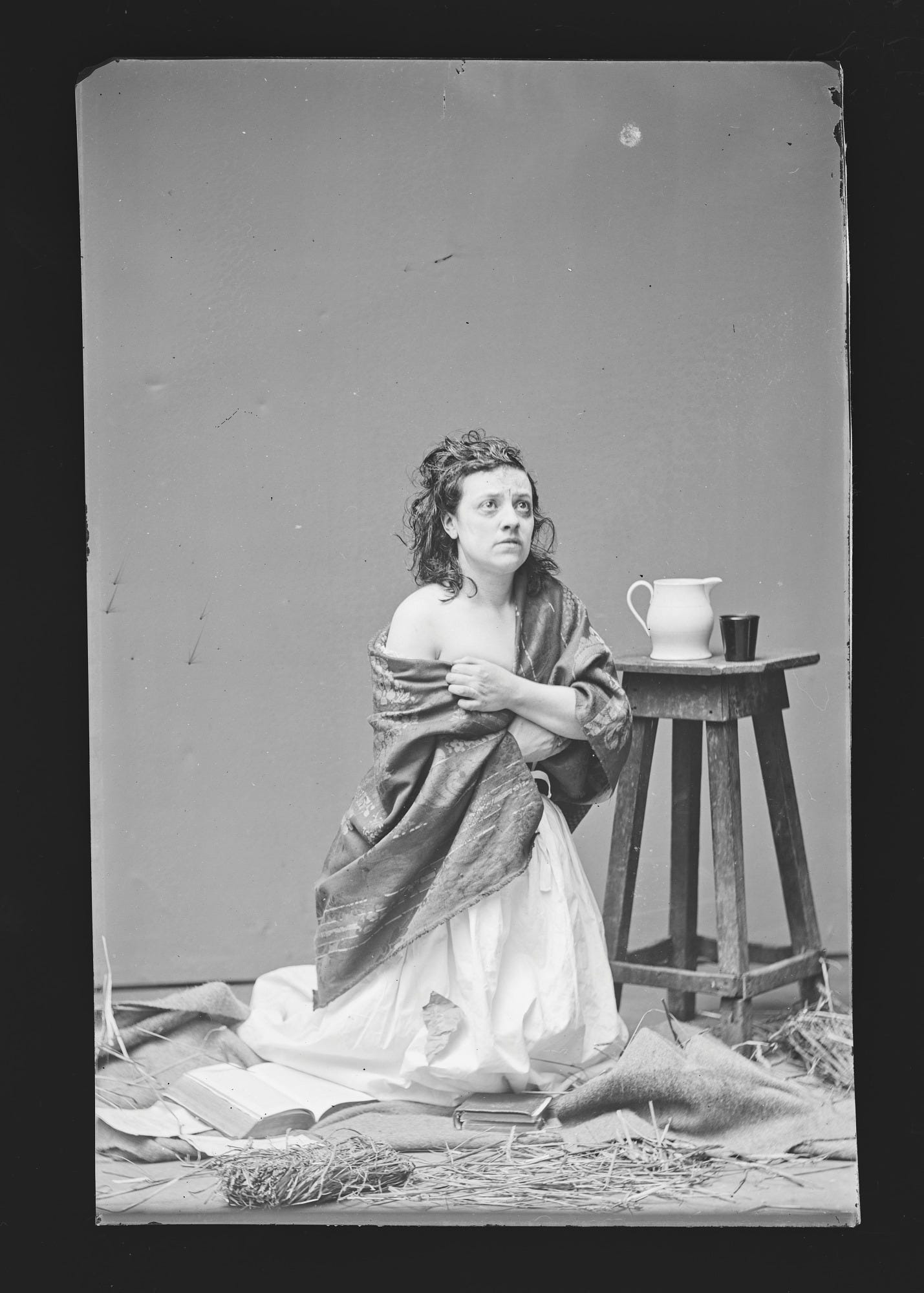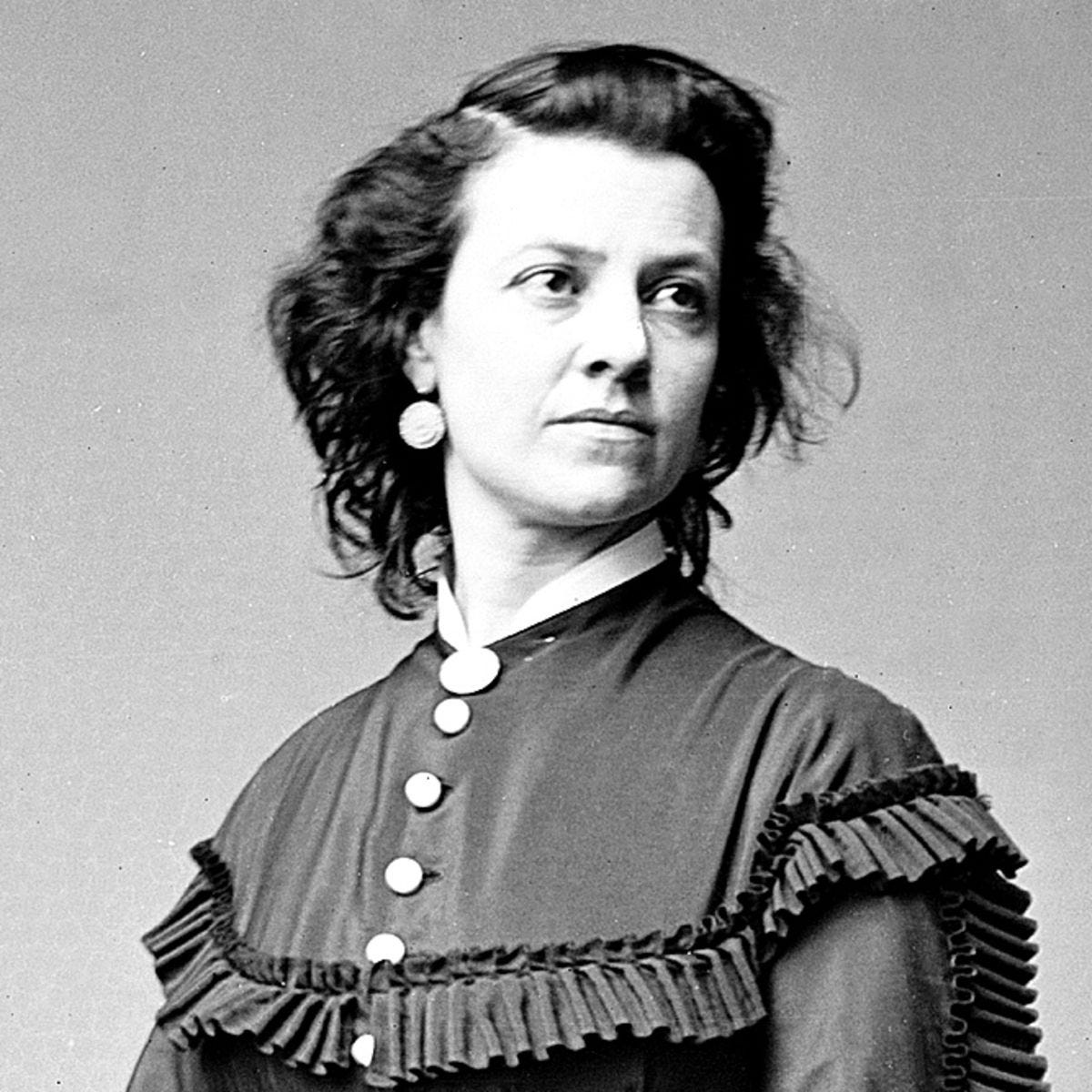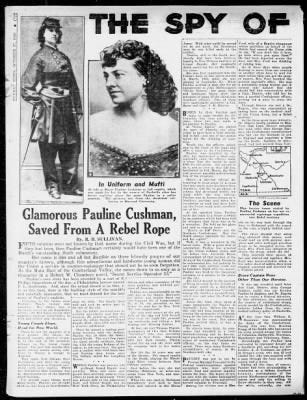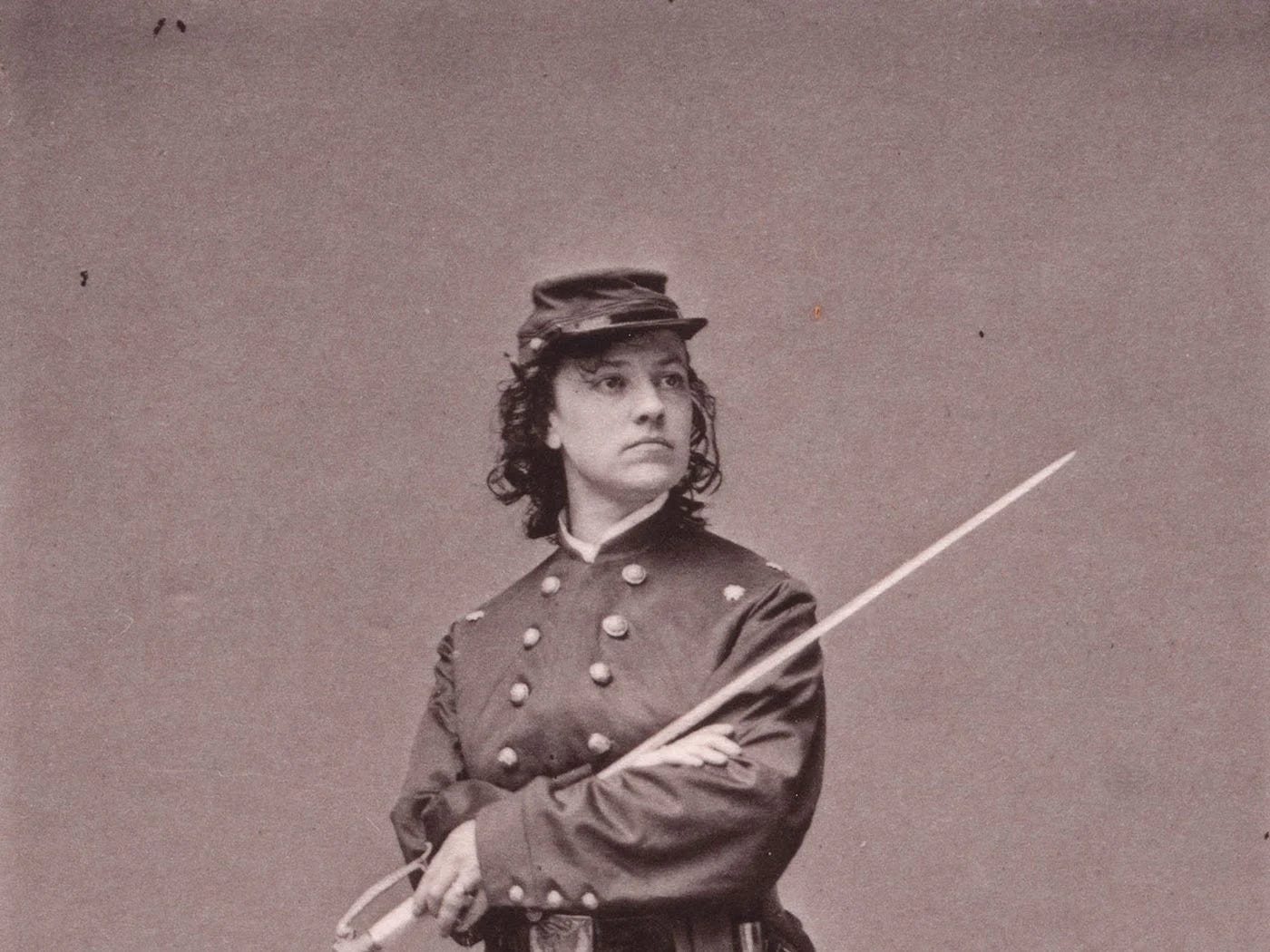Pauline Cushman, the actress who became a Union spy
Though trained as an actress, Pauline Cushman became famous for her activities as a Union spy during the American Civil War
“Thousands of our noble soldiers have gladly given up their lives for their country. Should I hesitate to do as much?”
These are the words of a lady unknown to many, yet celebrated by many more as a heroine. Pauline Cushman, born in 1833 in New Orleans, stage actress, mother of three, is one of the most successful Civil War spies (1861 to 1863).
As the legend goes, the circumstances that brought her there were unusual: performing at a Louisville theater, she was approached by Confederate officers who offered her a $300 bribe if she would raise a toast to the Confederacy while on stage. Cushman sought advice from Colonel Orland Hurley Moore (the U.S Provost Marshal) who told her to accept the offer and report back to him the next day. At the next evening's performance, Pauline did what she was instructed to do.
“Here’s to Jeff Davis and the Southern Confederacy. May the South always maintain her honor and her rights.”
She was fired from the theater as a result, but that incident made her a celebrity among southerners - and Moore gave her a job as a Union spy.
Cushman was instructed to meet Colonel Truesdail, chief of the Union Army Police in Nashville, who said to her:
Miss Cushman, all that you have yet done is as nothing compared with the service which it is now in your power to render your country. I have heard much of your courage, your devotion, and ready expedients; but what I want you to do now will demand a quickness of intellect and a powerful constitution, a ready wit and the courage of a soldier tried in a thousand fields.
Pauline was informed that the journey she was about to embark on was dangerous and could result in her death if she were to be caught - but that wasn't quite enough to make her change her mind. Raised with seven brothers in a rustic environment, she learned how to shoot shotguns and ride horses from a very young age. Her bold and self-reliant spirit would be a defining feature throughout her entire life.
On a number of occasions, Cushman's acting skills would come in handy: she would pose as a Confederate sympathizer dressed in both feminine and male attire, make friends with military commanders and gather intelligence.
“Posed as Southern woman in a boarding house, Cushman was able to stop the poisoning of Union soldiers by the boardinghouse’s mistress. The mistress revealed to Cushman that she had purchased powdered poison and planned to sprinkle it in the Union soldier’s food and drink. Cushman was able to transfer the soldiers to a different boardinghouse and eventually get the mistress arrested. Dressed as a man, Cushman convinced a Southern woman that she was an undercover Confederate official in route from Canada to Richmond with important, time-sensitive information. The woman, who was setting off to bring medical supplies and important documents to the South, invited Cushman to join her and helped facilitate her travel. Cushman was able to notify Union forces and have the woman arrested and her contraband confiscated”. Source
Cushman's most important assignment was in 1864, when she entered a Confederate camp in Tennessee pretending to be looking for her missing brother. She was apprehended by Confederate soldiers after she was caught stealing blueprints and drawings of their fortification plans.
Cushman even managed to escape captivity, but was subsequently apprehended (on June 12, 1863) and tried before a military court in Shelbyville, TN. She was found guilty and sentenced to death by hanging, but, in a major stroke of luck, her execution was postponed after she became ill.
Clearly, fate was in her favor: by the time she had fully recovered, the Union had conquered the region and rescued her.
After the war, Pauline Cushman was honored by President Lincoln as “Major of Calvary” and was invited by P.T. Barnum (American showman who was great at exploiting and using people's stories in a very disgusting way to entertain the masses and make money) to work at his American Museum.
She spent a while touring the US dressed in her uniform to talk about her adventures, but her notoriety would not last for long. Pauline soon disappeared from the public eye.
Pauline became addicted to pain medication and died in poverty, from an opium overdose, on December 2, 1893 in San Francisco, where she had been working as a seamstress.
She was buried with military honors in the Golden Gate National Cemetery.
In my new book, A Woman's World, we explore the many roles - domestic, social, cultural and professional - played by women across the world before second-wave feminism took hold, featuring women both celebrated and ordinary, whether in the science lab or protesting on the streets, performing on stage or fighting in the trenches, running for election or exploring the wild. This vivid and unique history brings to life and full color the female experience in a century of extraordinary change. If you enjoy my work, please consider pre-ordering the book via this link. Thank you!
Further reading
A Struggling Actress’s Greatest Role Was as a Real Civil War Spy
Women Soldiers, Spies, and Vivandieres: Articles from Civil War Newspapers







She was some lassie.